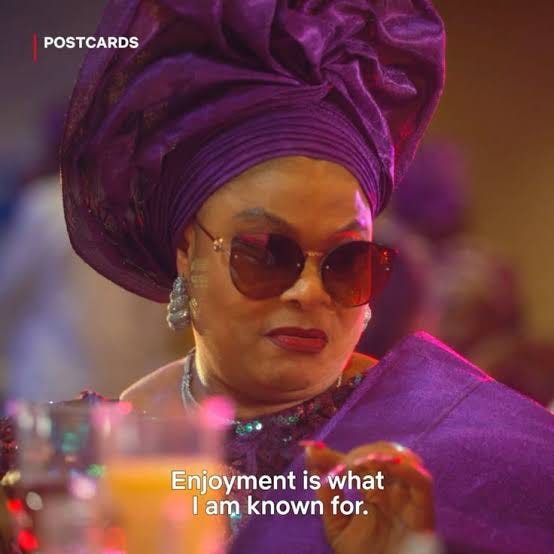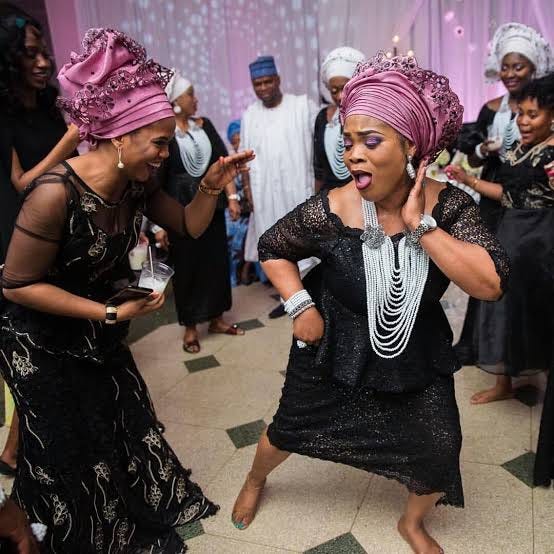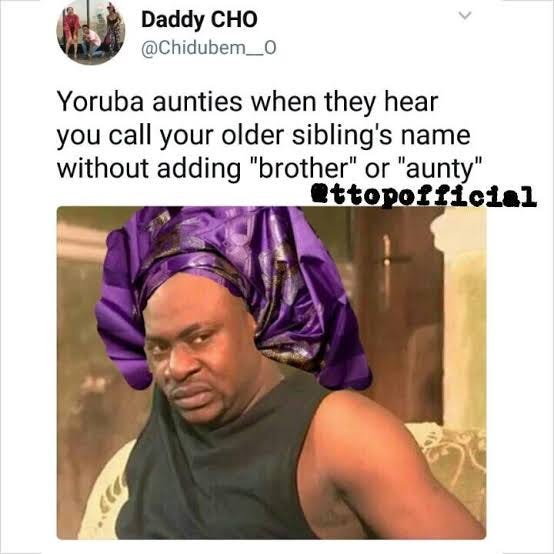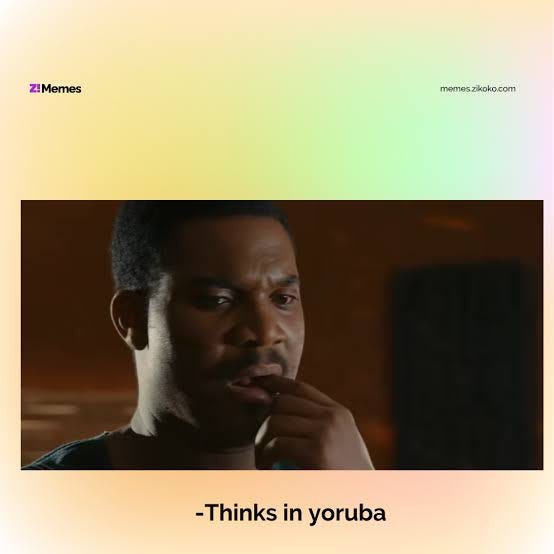Before you raise your cutlass or start sharpening your talking drum sticks, relax. I’m Yoruba too, which means I’m fully licensed to drag my people with reckless love and premium gist. This isn’t tribal shade. It’s an in-house meeting, and I came with pepper.
This newsletter is not an attack. It’s a testimony.
1. Everything is loud — even their whispers.
One time, I was in a bus coming from school, just trying to mind my business and think about life (or maybe about that 5-piece of dodo at home). A Yoruba woman sitting two seats away decided to call her daughter — I kid you not… the entire bus heard the conversation. She wasn’t shouting out of anger; that was just her normal volume. She said,
“Se mo ti so fun e pe ki o ma lo si ile yen mo?” — meaning “Haven’t I warned you not to go to that house again? Honestly, I felt that, because I can relate
2. They must greet you. Whether you like it or not.
I once visited a friend’s house and didn’t greet her dad properly (I said “good evening sir” like a normal human being). The silence that followed was spiritual. The way she looked at me, I thought maybe I had stepped on a shrine. Turns out, I was supposed to go full-on “E kaale sir” with a bow like I was auditioning for a king’s guard role. Yoruba greetings are not greetings... they are a performance art.
3. Too many proverbs, too little relevance.
I asked one of my Yoruba uncles for advice on choosing a major in school. He said:
“Ti omode ba subu, a wo iwaju; ti agbalagba ba subu, a wo ehin.”
Translation? If a child falls, he looks forward; if an elder falls, he looks back.
What does this mean for my career in sociology sir? Should I drop out or apply for internship in a village?
4. Every gathering is a potential wedding reception.
Yoruba people can party for anything. Birthday? Party. Funeral? Party. Baby’s first tooth? Party. One time, my Yoruba friend invited me to what she called a “small gathering.” I wore jeans and a T-shirt. I entered and saw a full Aso-Ebi squad, a live band, and someone spraying money like it grows back by morning. I sat in shame with my plastic cup of zobo, wondering if I had mistakenly entered a wedding.
Leave Party for yoruba people
5. Their confidence is a national resource.
I asked one Yoruba guy why he was so confident about passing a course we were all clearly failing. He just smiled and said,
“It’s in our blood. We don’t struggle.”
Oh really? Please, bottle that blood and sell it. Some of us are out here negotiating with past questions like it's a hostage situation.
6. The insults are Shakespearean
I was at the market, and I mistakenly bumped into this elderly woman’s pile of okra. She exploded:
“Oloshi, ori e o pe rara. Omo ale jatijati.
I wasn’t even angry. I was impressed. How do you insult someone and still use poetic devices?
Sometimes, you’ll need Google Translate, a therapist, and a choir backup to recover from a Yoruba insult. Even their backhanded compliments sound like warnings:
“You try small… for person wey no sabi book.”
7. Yoruba people will greet your entire existence — “Eku this, eku that.”
They have greetings for every single thing.
Eku ile — Welcome home
Eku alejo — Greeting a visitor
Eku ijoko — Greeting someone who is sitting
Eku iduro — Greeting someone who is standing
Eku ase — Greeting someone who is cooking
Once, I was sleeping all day, didn’t do any chores, and my grandma saw me. She said, “ku ise, omo daada” — which means “Well done, well behaved child.” Was that an acknowledgment or a compliment? Definitely not.
Bonus: Yoruba men?
Let’s not act like we don’t know the streets talk. Some say Yoruba men are charming, dramatic, and deeply mischievous. Others call them Yoruba demons.
Why?
Because Yoruba boys know how to press your soft spots like they're drummers in a Fuji band.
Mischievous? Yes.
Intentional? No.
Deliberate? 100%.
No be me talk am sha.
Ah Ah😹😭
At the end of the day, Yoruba people bring color, noise, and flavor to life... sometimes too much spice for my taste, but I wouldn’t trade it for anything. Of course, every tribe has its quirks (no tribe has a monopoly on madness), but the Yoruba way of turning even the smallest moment into a festival is something else entirely.
So, whether you’re shouting greetings from the rooftops or throwing shade with poetic curses, it all adds to the beautiful madness we call life.
And even as I write this, I’m hearing “Ijo fuji” blasting from a Yoruba neighbor’s speaker. It’s 8am. On a Wednesday. nitori oloun
Lord, grant me patience.
By the way, I’m Yoruba myself...so consider this a friendly roast from one proud son of the land.
















Okay ma😹
Thank you for reading🤍
You didn’t tell one lie
Another thing is our appreciation game, do something for a Yoruba person and you’ve basically subscribed to a lifetime of gratitude. Even if they see you next after ten years, they’ll still hit you with a heartfelt “eseun ojosi.” 😂